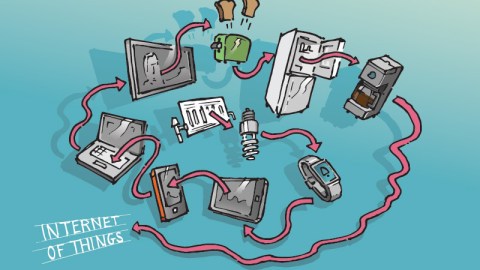The Internet of Things Will Make You Poor, Surveilled, and Alone

Futurists who believe endlessly in the miracle of technology are seizing on the approaching Internet of Things as the next harbinger of leisure, independence, and fun in the sun. But a more measured approach forecasts a very different future, argues Sue Halpern, who reviews three books on the subject at the New York Review of Books.
The glaring security lapses that have accompanied financial data stored by corporations will be expanded upon when everything is connected to the Internet, including your washing machine, refrigerator, clothing, pet bowl, ad nauseam. And worse than your credit card number being held, hacking the Internet of Things will shut down processes you will rely on to keep food and water coming into your house.
The Internet of Things, argues Halpern, is more about companies getting free data so they can understand your needs (and then sell you things to meet those needs).
The most revolutionary aspect of the Internet of Things is that it will completely decouple human labor from productivity. Machines will replace more and more of what we do, and even the jobs created for people to run machines will be—run by machines. Yet we will turn to personal devices connected to the Internet more often to assuage the growing hole in our emotional lives left by a lack of civic engagement.
Jeremy Rifkin, whose book is reviewed by Halpern, argues in his Big Think interview that a fundamental change is coming to capitalism as marginal cost reaches zero:
Read more at the New York Review of Books
Photo credit: Shutterstock




